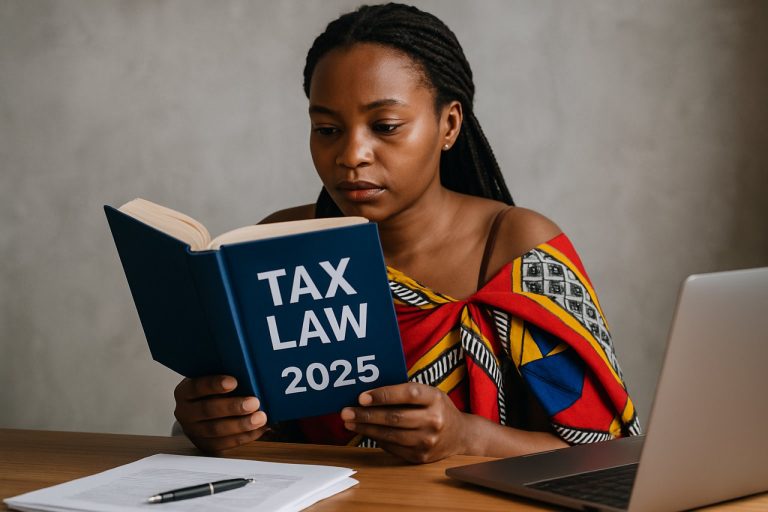
Table of Contents
- Introduction: Sudan’s Investment Landscape in 2025
- Macroeconomic Trends Shaping Sudan’s Market
- Key Growth Sectors: Where the Smart Money Is Going
- Legal Framework: Business Laws and Foreign Investment Regulations
- Taxation & Incentives: What Investors Need to Know
- Compliance and Regulatory Environment
- Infrastructure and Logistics: Opportunities and Challenges
- Labor Market and Workforce Potential
- Key Statistics: Data-Driven Insights (2025–2030)
- Future Outlook: Risks, Opportunities, and Strategic Recommendations
- Sources & References
Introduction: Sudan's Investment Landscape in 2025
Sudan’s investment landscape in 2025 is shaped by a complex interplay of political developments, evolving legal frameworks, and significant economic challenges and opportunities. The nation, endowed with substantial natural resources—including gold, agriculture, and livestock—remains strategically positioned at the crossroads of Africa and the Middle East. However, Sudan’s appeal to foreign and domestic investors is tempered by ongoing political uncertainty following the 2021 military takeover and subsequent conflict, which have profoundly impacted its business climate and institutional stability.
The principal legislative instrument governing investment is the Investment Encouragement Act, last updated in 2013 and periodically amended to reflect new policy priorities. The Act provides for equal treatment of foreign and local investors, guarantees against expropriation without fair compensation, and outlines provisions for dispute resolution. The Ministry of Investment and International Cooperation acts as the primary regulator, overseeing licensing, incentives, and compliance for new investment projects. Investors must also comply with sector-specific regulations, particularly in areas such as mining, agriculture, and telecommunications.
Recent years have seen efforts to modernize Sudan’s investment framework. In 2023 and 2024, the government, through the Ministry of Finance and Economic Planning and the Central Bank, implemented reforms aimed at liberalizing exchange rates, improving transparency, and simplifying procedures for foreign direct investment (FDI). Despite these reforms, challenges remain. Sudan continues to be listed by the Financial Action Task Force (FATF) as a jurisdiction under increased monitoring, requiring enhanced due diligence from investors regarding anti-money laundering (AML) and counter-terrorism financing compliance (FATF).
Key statistics reflect the volatility of Sudan’s investment environment. According to the Central Bank of Sudan, FDI inflows declined sharply from over $1 billion in 2017 to less than $500 million by 2023, largely due to persistent instability and international sanctions. The private sector remains constrained by limited access to finance and underdeveloped infrastructure, though sectors such as gold mining and agriculture continue to attract significant interest.
Looking ahead to 2025 and beyond, the outlook for investing in Sudan remains cautiously optimistic but highly dependent on political stabilization and further legal reforms. International organizations and multilateral partners are poised to re-engage if progress is made toward peace and democratic governance. Potential investors are advised to monitor regulatory changes closely, conduct rigorous due diligence, and maintain robust compliance mechanisms to navigate Sudan’s unique risks and opportunities.
Macroeconomic Trends Shaping Sudan’s Market
Sudan’s macroeconomic landscape in 2025 is both complex and evolving, shaped by recent political transitions, ongoing conflict, and efforts to reintegrate into the global economy. The removal of long-standing sanctions in recent years, alongside the country’s removal from the U.S. State Sponsors of Terrorism list, initially opened pathways for foreign investment and economic reform. However, the 2023 conflict between the Sudanese Armed Forces and Rapid Support Forces has caused significant economic disruption, impacting the investment climate into 2025.
According to the Central Bank of Sudan, Sudan faces high inflation—averaging over 230% in late 2024—alongside a steep currency depreciation. These macroeconomic imbalances are exacerbated by declining oil transit revenues (following South Sudan’s production disruptions) and ongoing challenges in the agricultural and gold sectors, which are critical sources of foreign exchange. The Central Bank of Sudan reports that gold exports remain volatile due to informal trade routes and regulatory uncertainty.
Investment laws have undergone significant changes since 2020, with the Ministry of Justice and Ministry of Investment and International Cooperation promoting the Investment Act (2021) to provide incentives for foreign investors, such as customs exemptions and repatriation of profits. However, compliance remains challenging amid legal uncertainty, shifting authority between transitional government institutions, and periodic amendments to investment regulations. The Ministry of Investment and International Cooperation has stated its commitment to streamlining business registration and licensing, but practical implementation has been hampered by the ongoing conflict and administrative fragmentation.
- Sudan’s GDP contracted sharply in 2023 due to disruptions in Khartoum and other economic hubs (Central Bank of Sudan).
- Foreign Direct Investment (FDI) inflows remain low—less than $1 billion in 2024—reflecting investor caution amid security and regulatory risks (Ministry of Investment and International Cooperation).
- Key sectors attracting investment interest include agriculture, mining (gold), and infrastructure, but require substantial risk mitigation and local partnerships.
Looking ahead, Sudan’s macroeconomic outlook for 2025 and beyond hinges on political stabilization, peace negotiations, and restoration of core government functions. The potential for renewed international support—conditional on progress in governance and security—could unlock donor funding, technical assistance, and improved access to global markets. However, investors should closely monitor legal developments, compliance requirements, and sector-specific risks as the country’s regulatory environment remains fluid and subject to sudden change.
Key Growth Sectors: Where the Smart Money Is Going
Sudan’s investment landscape in 2025 is shaped by both longstanding sectoral strengths and evolving dynamics driven by regional demand, infrastructure needs, and global shifts. Despite persistent political and security challenges, several key sectors are attracting attention from local and international investors, supported by regulatory incentives and Sudan’s strategic geographic position.
- Agriculture and Agri-processing: Sudan boasts over 200 million acres of arable land, with the sector employing approximately 80% of the workforce. Recent government emphasis on food security and value addition has led to new incentives, including tax holidays and customs exemptions for agri-processing equipment. The Ministry of Agriculture and Forests reports that wheat, sesame, sorghum, and gum arabic production are prioritized for export-oriented investment.
- Mining and Natural Resources: Gold mining remains a top foreign exchange earner, with Sudan ranking among Africa’s leading gold producers. In 2025, the Ministry of Minerals has continued licensing reforms to attract responsible investment and curb illicit trade, requiring compliance with stricter anti-money laundering and environmental regulations.
- Renewable Energy: Chronic electricity shortages and rising demand have propelled renewables—particularly solar and wind—onto the investment agenda. The Ministry of Energy and Petroleum is offering land grants and feed-in tariffs for grid-scale projects, aiming to increase renewables’ share from below 10% to at least 20% by 2030.
- Infrastructure and Construction: Reconstruction of roads, bridges, and logistics hubs is a government priority, with public-private partnership frameworks established under the Ministry of Finance and Economic Planning. The Sudanese Investment Act (amended 2023) provides legal guarantees for foreign investors, including repatriation of profits and protection against expropriation.
- Telecommunications and ICT: With internet penetration below 35%, there is significant room for growth. The National Telecommunications Corporation is promoting 4G/5G infrastructure development and digital financial services, offering expedited licensing to foreign investors.
The outlook for 2025 and beyond is cautiously optimistic. While conflict and transitional governance remain risks, sector-specific reforms and Sudan’s market fundamentals are drawing “smart money” to agriculture, energy, mining, and digital infrastructure, positioning these as key growth engines for the post-conflict recovery phase.
Legal Framework: Business Laws and Foreign Investment Regulations
Sudan’s legal framework for business and foreign investment remains complex and continues to evolve amidst the country’s ongoing political and economic transition. The cornerstone of foreign investment regulation is the Investment Act of 2021, administered by the Ministry of Investment and International Cooperation. The Act provides incentives such as tax exemptions and guarantees against expropriation, aiming to attract foreign direct investment (FDI) into priority sectors including agriculture, mining, energy, and infrastructure.
Under the current legal regime, foreign investors must obtain an investment license and register their business with the Commercial Registrar General. The licensing process requires submission of feasibility studies, compliance with sector-specific regulations, and, in certain industries, joint venture arrangements or minimum capital requirements. The Investment Act also establishes dispute resolution mechanisms, with recourse to Sudanese courts or, under specified agreements, international arbitration.
Sudan is a member of the Common Market for Eastern and Southern Africa (COMESA) and adheres to some regional protocols on investment protection and dispute settlement. However, the country remains outside key international investment conventions such as the ICSID Convention. In 2024, the government initiated a review of investment laws to align with global best practices and address investor concerns about legal certainty, currency repatriation, and contract enforcement.
Compliance with anti-money laundering (AML) and counter-terrorism financing (CTF) standards is overseen by the Central Bank of Sudan and the Sudanese Financial Intelligence Unit. The regulatory environment has seen incremental improvement following Sudan’s removal from the U.S. State Sponsors of Terrorism list, but risks remain due to gaps in enforcement and financial sector vulnerabilities.
Recent statistics indicate that FDI inflows, while modest, are recovering from historic lows. According to the Central Bank of Sudan, FDI in 2024 was estimated at USD 1.2 billion, primarily in mining and agriculture. The outlook for 2025 and beyond is cautiously optimistic, contingent on further legal reforms, macroeconomic stabilization, and sustained peace efforts. The government has signaled its intent to streamline business registration, strengthen investor protections, and facilitate cross-border transactions to position Sudan as a competitive destination in the region.
Taxation & Incentives: What Investors Need to Know
Sudan’s taxation framework and investment incentives are shaped by ongoing economic reforms, regional dynamics, and the critical need to attract foreign capital. As of 2025, investors must navigate a landscape influenced by both national law and the complexities of Sudan’s transitionary economy.
- Corporate Taxation: Corporate income tax rates in Sudan vary by sector. Standard companies are generally subject to a 15% rate, while higher rates apply to banking (30%), insurance (27%), and oil and gas (35%). Non-residents are taxed on Sudanese-sourced income. The tax regime is set out in the Ministry of Finance and Economic Planning’s published schedules and is enforced by the Taxation Chamber.
- Value Added Tax (VAT): Sudan levies VAT at a standard rate of 17% on most goods and services. Certain essential items and exports may be zero-rated or exempted, but compliance requires regular filings and thorough documentation.
- Investment Incentives: The Ministry of Investment administers investment incentives under the Investment Act. Key incentives include exemptions from customs duties on capital equipment, tax holidays (ranging from 5 to 10 years for strategic sectors), and guarantees against expropriation. Special Economic Zones (SEZs) and free zones offer additional tax relief, streamlined import/export processes, and repatriation of profits.
- Double Taxation Treaties: Sudan has signed limited double taxation agreements, mainly with Arab and African countries. Investors should verify current treaties with the Taxation Chamber to avoid double liabilities.
- Compliance Requirements: All companies must register for tax, maintain transparent accounting, and submit annual returns. The government has intensified efforts to digitalize tax administration, but practical implementation remains uneven, especially outside Khartoum. Delays and inconsistencies are common, and foreign investors are advised to engage accredited local accountants.
- Recent Developments: Recent years have seen the Sudanese authorities attempt major tax reform to broaden the base and improve compliance, as part of International Monetary Fund-advised restructuring. However, ongoing political instability and regional conflict have caused delays in full implementation. Investors should monitor updates via the Ministry of Finance and Economic Planning.
- Outlook 2025 and Beyond: While Sudan’s tax incentives remain among the region’s most generous, the risk profile is elevated due to administrative unpredictability. The government is expected to continue offering incentives to attract foreign direct investment, but reforms could lead to changes in rates or eligibility. Diligent compliance and proactive legal review are essential for sustained operations.
Compliance and Regulatory Environment
Sudan’s compliance and regulatory environment for investors in 2025 is shaped by ongoing political transition, shifting legal frameworks, and the imperative to attract foreign capital amid global and domestic challenges. The cornerstone for foreign investment remains the Investment Encouragement Act (last amended 2021), which outlines incentives such as tax holidays, customs exemptions, and guarantees against nationalization for qualifying projects. The Sudan Investment Promotion Agency serves as a one-stop-shop for approvals, licensing, and regulatory coordination, aiming to streamline bureaucratic hurdles historically cited as obstacles by international investors.
Key compliance requirements include mandatory registration with the Ministry of Commerce and Supply, adherence to sector-specific licenses (notably in mining, agriculture, and oil), and due diligence under Sudan’s anti-money laundering and counter-terrorism financing regime, overseen by the Central Bank of Sudan. Investors must also comply with local content provisions in strategic sectors—especially in extractives—ensuring employment and procurement benefits for Sudanese nationals and businesses.
Sudan is not yet a full member of the World Trade Organization, and significant regulatory alignment with international norms is ongoing. Since 2023, reforms have included electronic company registration, digital customs clearance, and new guidelines for repatriation of profits. However, the U.S. and EU maintain targeted sanctions and compliance screening lists related to human rights and conflict, requiring enhanced due diligence from foreign entities. The government in 2024 established a committee under the Ministry of Justice to review investment dispute resolution mechanisms, with the aim of strengthening investor protections and aligning arbitration practices with international standards.
Investment flows remain modest: the Central Bank of Sudan reported FDI inflows of $480 million in 2023, well below regional peers, reflecting ongoing risk perceptions. Nevertheless, sectors such as agriculture, gold mining, and infrastructure are prioritized for regulatory improvements and targeted incentives through 2025. The outlook for compliance is cautiously optimistic; while reforms are progressing, investors must stay vigilant regarding evolving laws, enforcement variability between regions, and the unpredictable impact of Sudan’s fragile political transition on the legal environment.
- Investors should monitor updates from the Sudan Investment Promotion Agency and relevant ministries for regulatory changes.
- Due diligence on sanctions, AML/CFT compliance, and dispute resolution recourse is essential.
- Sectoral regulations and local content policies may shift quickly as policy priorities evolve in 2025 and beyond.
Infrastructure and Logistics: Opportunities and Challenges
Sudan’s infrastructure and logistics sector presents a complex landscape for investors in 2025, characterized by both acute challenges and notable opportunities. Years of underinvestment, conflict, and recent political instability have left core infrastructure—such as roads, ports, railways, and power grids—underdeveloped or damaged. As of 2025, the government, under transitional arrangements, continues to prioritize reconstruction and modernization, with infrastructure recovery considered essential for economic revival and regional integration.
Key laws governing infrastructure and logistics investment include the Investment Act 2021 and sector-specific regulations issued by the relevant ministries. These laws aim to protect foreign investment, guarantee repatriation of profits, and offer tax incentives in selected sectors, notably infrastructure. However, compliance with licensing, environmental, and local content requirements—administered by the Sudan Investment Promotion Authority and sectoral agencies—remains essential, and due diligence is advised given frequent policy adjustments.
Sudan’s transport network remains fragmented. The country has roughly 12,000 km of paved roads, mainly linking Khartoum with Port Sudan and some regional centers. The railway system, once among Africa’s largest, now operates at reduced capacity due to aging infrastructure and disruptions from conflict. Port Sudan, the principal maritime gateway, faces persistent congestion, limited container handling facilities, and periodic closures due to labor or security issues (Ministry of Transport and Communications). Electricity supply is unreliable, with an estimated 40% of the population connected to the grid, and frequent outages; the government is seeking private investment in both power generation and transmission (Ministry of Energy and Petroleum).
Despite these hurdles, there are significant opportunities. Sudan’s strategic location makes it a potential logistics hub for landlocked neighbors such as South Sudan, Chad, and the Central African Republic. The government has signaled openness to public-private partnerships (PPPs), particularly in port expansion, highway upgrades, renewable energy, and industrial park development. Recent calls for bids on the expansion of Port Sudan and the rehabilitation of the Khartoum-Port Sudan railway underscore this trend. The African Development Bank and Gulf states have also expressed interest in co-financing major infrastructure projects (African Development Bank).
- Investors should closely monitor Sudan’s evolving legal framework, security situation, and international sanctions status.
- Opportunities are strongest for those able to navigate compliance, form local partnerships, and contribute to capacity-building in logistics and infrastructure management.
- Long-term outlook is contingent on stabilization, but pent-up demand and regional trade prospects could drive robust sectoral growth if reforms persist.
Labor Market and Workforce Potential
Sudan’s labor market is characterized by a large, young population and a workforce shaped by both opportunity and ongoing challenges. As of 2025, the country’s estimated population exceeds 49 million, with over 60% under the age of 25, providing a substantial potential workforce for investors seeking to capitalize on demographic trends. However, the labor market is also affected by instability, internal displacement, and disruptions due to ongoing conflict, which have intensified since April 2023.
Labor regulations in Sudan are governed primarily by the Labour Act 1997, which outlines employment standards, wage requirements, working hours, and occupational safety. The Act applies to most private sector employers, though certain sectors (notably agriculture and domestic work) may be subject to different provisions. The minimum wage is periodically reviewed by the Ministry of Labour and Administrative Reform, but enforcement remains inconsistent, especially outside major urban areas. Sudan is also a signatory to several core conventions of the International Labour Organization (ILO), including those on forced labor, child labor, and non-discrimination.
Formal sector employment remains limited, with the informal sector comprising an estimated 60-80% of total employment according to the Central Bank of Sudan and government sources. The largest employers are agriculture (over 40% of the labor force), followed by services and industry. Unemployment rates—already officially above 20% prior to the 2023 crisis—are believed to have risen sharply, though reliable recent statistics are unavailable due to the disruption of government operations and mass displacement.
Compliance with labor laws is a crucial consideration for foreign investors. The government has previously created special economic zones with streamlined procedures, but as of 2025, implementation is hindered by security issues and limited administrative capacity. Investors must also pay close attention to the evolving regulatory framework, as the Ministry of Labour and Administrative Reform periodically issues directives on expatriate labor quotas, work permits, and localization policies intended to promote Sudanese employment.
Looking ahead, Sudan’s workforce offers significant potential for investors in sectors such as agribusiness, manufacturing, and services, particularly if stability improves. However, challenges related to skills gaps, infrastructure, and ongoing conflict will persist in the near term. Investors are advised to monitor updates from the Ministry of Labour and Administrative Reform and relevant authorities for compliance requirements and labor market developments as the situation evolves over 2025 and beyond.
Key Statistics: Data-Driven Insights (2025–2030)
Investing in Sudan between 2025 and 2030 is shaped by a complex interplay of macroeconomic pressures, ongoing political developments, and a drive for regulatory reform. The country’s economy, with a GDP estimated at around $34 billion in 2023, continues to face contraction due to internal conflict and external shocks. According to the Central Bank of Sudan, annual inflation rates have fluctuated widely, peaking above 200% in recent years, but are projected to moderate to below 100% by 2025 if stabilization efforts succeed.
- Foreign Direct Investment (FDI): Sudan’s FDI inflows have historically been volatile, falling to less than $1 billion annually since 2020. The Ministry of Finance and Economic Planning has prioritized reforms to attract new capital, particularly in agriculture, mining, and infrastructure. Their 2024–2026 investment roadmap anticipates annual FDI could rise by 25–30% per year if peace and regulatory clarity improve.
- Sectoral Opportunities: Agriculture remains the backbone, accounting for over 30% of GDP. Recent initiatives from the Ministry of Agriculture and Forests target large-scale irrigation and export crop growth, with a projected sectoral annual growth rate of 5–7% through 2030, contingent on security and investment climate stabilization.
- Legal and Compliance Landscape: The Sudan Investment Promotion Agency reports that the Investment Act and related regulations have been updated to streamline licensing, clarify tax incentives, and encourage public-private partnerships. However, compliance risks remain high due to ongoing changes in property rights, contract enforcement, and foreign exchange controls.
- Workforce and Demographics: Sudan’s labor force exceeds 14 million, with a median age of 19. The Central Bank of Sudan and Central Bureau of Statistics project urbanization rates to climb from 35% to 40% by 2030, expanding the consumer market and skilled labor pool.
- Outlook (2025–2030): The outlook for investment in Sudan is cautiously optimistic if peace agreements hold and reforms are implemented. The Ministry of Finance and Economic Planning forecasts that, under a positive scenario, GDP growth could rebound to 3–4% annually by 2027, with infrastructure, agri-business, and mining as leading sectors.
Despite significant risks, Sudan’s untapped resources, strategic location, and young population present long-term opportunities for investors prepared to navigate a challenging but potentially rewarding environment.
Future Outlook: Risks, Opportunities, and Strategic Recommendations
Sudan’s investment climate in 2025 is shaped by significant transitions and persistent challenges. The country remains under a complex political and security environment following the outbreak of armed conflict in April 2023, which disrupted economic activities and governance structures. The transitional government’s reform agenda and the ongoing peace negotiations are pivotal for restoring investor confidence, yet the risk profile remains elevated.
- Regulatory and Legal Developments: Sudan’s Investment Promotion Act (2021) continues to serve as the legal framework for foreign and domestic investment, offering incentives such as tax exemptions and guarantees against expropriation. However, the efficacy of these provisions is hindered by institutional instability and limited enforcement capacity. The Ministry of Investment and International Cooperation has announced intentions to revise the investment code to align with international best practices, streamline approval processes, and bolster investor protections.
- Compliance and Due Diligence: Investors must navigate a complex compliance landscape, particularly concerning anti-corruption regulations. Sudan remains subject to targeted U.S. sanctions related to conflict-affected regions, despite the 2020 removal from the U.S. State Sponsors of Terrorism list. Enhanced due diligence is required for transactions involving politically exposed persons or entities with military affiliations, as highlighted by ongoing measures from the Central Bank of Sudan to monitor financial flows and combat money laundering.
- Key Economic Indicators: Sudan’s GDP contracted sharply due to conflict, with the Central Bank of Sudan reporting a significant decline in oil exports and currency reserves. The Sudanese pound remains volatile, inflation rates exceed 100%, and the formal banking sector faces liquidity constraints. These macroeconomic headwinds limit access to finance and increase operational costs for investors.
- Opportunities: Despite headwinds, sectors such as agriculture, mining (notably gold), and telecommunications present long-term potential. The Ministry of Investment and International Cooperation continues to prioritize public-private partnerships, especially for infrastructure reconstruction and value-added processing industries.
- Strategic Recommendations: Prospective investors should adopt a cautious, phased approach, emphasizing risk mitigation, local partnerships, and robust compliance frameworks. Engagement with Sudanese authorities and multilateral institutions will be essential for navigating regulatory changes and accessing possible investment guarantees. Monitoring ongoing legal reforms and conflict resolution efforts is critical for timely adaptation to shifts in the investment climate.
The outlook for investing in Sudan in 2025 remains uncertain, with stabilization hinging on political settlements and institutional reforms. While opportunities exist, they are accompanied by substantial risks, making strategic diligence and adaptive planning imperative for success.



